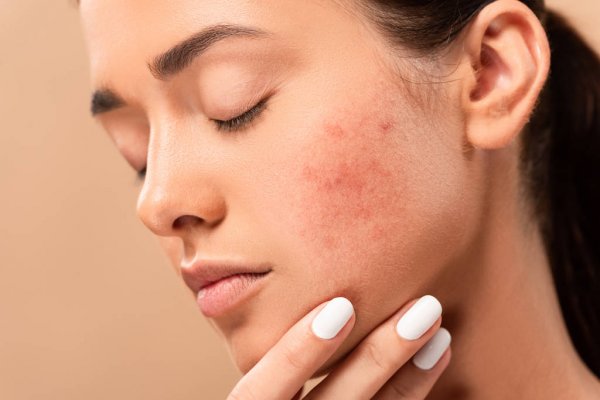
After the summer, one of the biggest beauty concerns is how to get rid of facial blemishes. Fall is the best time to start treating them, even though we need to take care of our skin all year long so they don’t reappear. Not sure how to proceed? Not to worry! Today, we are going to learn more about blemishes and how we can deal with them.
What are Blemishes?
Blemishes are discolorations of the skin, and they can be lighter or darker than our usual skin tone.
The most common and troublesome to get rid of are the darker ones, those with a brownish tinge. These spots appear due to an excess of pigmentation in this area, that is, an excess of melanin, which is the pigment that gives color to the skin, eyes and hair.
There are different types of blemishes and that’s what we are going to discuss about next.
Different Types of Blemishes
Gestational Chloasma
During pregnancy, hormonal changes can cause an increase in melanin production, which, along with the sun, produces dark spots on certain areas of the skin. They tend to appear especially in women with a darker complexion who already produce more melanin on a regular basis.
Gestational Chloasma usually happens on the forehead, cheeks and upper lip. In many cases, after pregnancy and breastfeeding (if breastfeeding), when hormone levels return to normal, these spots can disappear. If after this period the spot has not disappeared, it is called melasma.
Age Spots
Age spots are very common, especially in fair-skinned people, and usually appear on the hands, shoulders and décolleté.
They are very similar to freckles, although they can be larger, up to 2 cm.
Sun Spots
They are very similar to age spots, except that in these the cause is solely the sun, so although they usually appear in people over 40, they can appear earlier.
Because they are small, they are often confused with freckles.
Perfume Spots
Did you know that perfumes can cause spots on the skin? It’s more common than you think.
Perfumes contain alcohol and certain components to make the scent last longer, which react when UV rays hit them and can cause skin reactions and spots.
The most common areas where this type of spots appear are the neck and décolletage, as the skin in these areas is sensitive and usually very exposed to the sun. The best way to prevent them is to apply the perfume on the wrists in winter when we wear long sleeves, behind the ears and spray on clothes.
Tips to Prevent Blemishes
As with other aesthetic problems, it is always best to prevent them than to cure them.
We all know that freckles and moles get darker in the summer, even temporarily, and the same goes for pimples, but they are more expensive to get rid of.
This is because sun exposure influences the pigmentation of the skin. The first thing to do is to protect yourself from the sun. And here are a few tips to do just that:
– Always use SPF 50
– Avoid exposing yourself to the sun between noon and 4pm.
– Use items that protect your face from the sun, such as hats or visors.
– Do not apply cosmetics during the day that may react to UV rays.
– Take care of your skin year-round to treat and prevent blemishes.
How to Get Rid of Blemishes?
Most blemishes are benign and the problem is only aesthetic, but if you have any doubts or new spots that you see on your skin, it is advisable to go to a dermatologist and consult the most appropriate treatment.
There are currently different cosmetic products and treatments to be done that will help reduce and eliminate facial imperfections.
Diamond microdermabrasion: this is a treatment performed in a cabin to eliminate the cells of the most superficial layers of the skin and promote their renewal. The result is a more even skin texture and tone.
Peelings: they can be physical (those with granules) or chemical, containing different active principles that help skin renewal.
Active ingredients: many treatments, such as creams, serums or chemical peels, contain ingredients that help to eliminate spots. Among the most common are:
– Kojic acid
– Glycolic acid
– Vitamin C (ascorbic acid)
– Lactic acid
Remember however that the best anti-spot treatment you can use is good sun protection all year round.
What skin conditions did you suffer before apart from blemishes? And how did you solve the problem? Share your tips in the comment section below.


